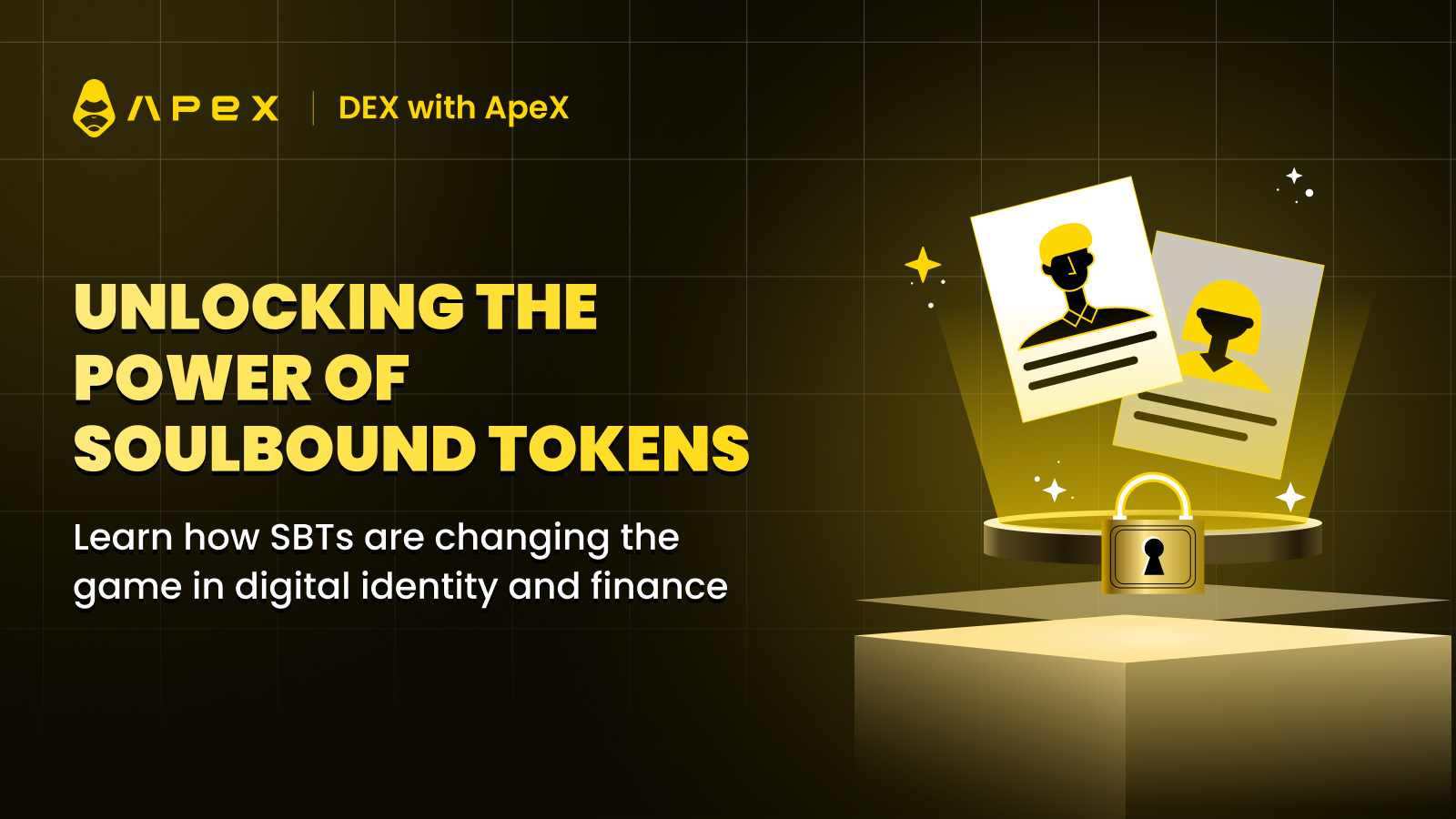Soulbound tokens (SBTs) are innovative type of digital assets uniquely tied to a specific user or account on the blockchain, distinguishing them from traditional non-fungible tokens (NFTs). Introduced by Vitalik Buterin, Glen Weyl, and Puja Ohlhaver, the concept of SBTs plays a pivotal role in their vision of a decentralized society (DeSoc). Unlike conventional NFTs that can be traded or sold, SBTs are non-transferable, ensuring enhanced security by preventing unauthorized access or transfer.
SBTs are designed to securely and verifiably represent an individual's/entity's personal attributes, credentials, and achievements across various sectors, including education, finance, gaming, and more. They can be issued or revoked by a range of distribution parties, such as smart contracts, entities, or decentralized autonomous organizations (DAOs), and are stored in specialized wallets known as Souls. By encapsulating and showcasing a person's or entity's social and professional affiliations, SBTs offer a comprehensive and trustworthy digital representation of a holder's identity and accomplishments.
Now that we've established the foundational concept of Soulbound Tokens, let's explore their practical applications in the rapidly evolving DeFi ecosystem.
Exploring SBT Use Cases in DeFi
SBTs are already making waves in the DeFi space. Here are some ways in which they are being utilized in the ecosystem, as well as their potential in unlocking greater opportunities for seamless and secure operations:
1. Decentralized Identity Verification:
SBTs can act as digital identities, storing verifiable credentials like KYC information. This enables users to interact with DeFi platforms without repeatedly undergoing identity verification processes, streamlining access while maintaining privacy and security. A practical example of this application is Binance's Account Bound token, the credentials Binance users receive to confirm that a user has completed Binance's KYC process. Once verified, the BAB token can be displayed in a user's wallet as proof of verification, facilitating smoother interactions.
2. Governance and DAOs:
In the context of decentralized governance, SBTs can signify membership, voting rights, or other participatory roles within DAOs or other decentralized organizations. By using SBTs to verify and authenticate community members, DeFi protocols and other applications can ensure that governance decisions are made by committed and verified participants, fostering a more secure and inclusive decision-making process.
3. Access Rights and Subscriptions:
Furthermore, SBTs can be used to manage subscriptions or access rights to premium services on a DeFi platform based on the tokens a user holds. For example, possessing a specific SBT could unlock access to higher yield farming pools or exclusive investment opportunities. An implementation of this concept are Soulbound Lending Pools. Masa, an Ethereum Virtual Machine (EVM)-compatible SBT protocol in partnership with Teller launched lending pools to verify a user's web3 credit score and soulbound identity to establish creditworthiness. This would enable borrowers to have instant-approval and customized loans based on assets in wallets, and build credit history via repaying loans on time.
4. Credit Scoring and Undercollateralized Loans:
Additionally, SBTs can enhance credit scoring in DeFi by recording and verifying financial behaviors, such as timely loan repayments. This approach to credit scoring could pave the way for more efficient undercollateralized lending, allowing borrowers to secure loans based on their creditworthiness rather than relying on the over-collateralization that's common to current DeFi lending practices.
Considering all the above, it is clear that the adoption of Soulbound Tokens in DeFi offers a multitude of opportunities for more personalized, secure, and efficient financial services.
Having examined the diverse use cases of SBTs in DeFi, let's look at what ApeX is doing to fortify its social trading model with the use of SBTs.
ApeSoul — ApeX's SBT
Capitalizing on the power of SBTs, we are integrating SBTs to drive our decentralized social trading framework with the inception of ApeX's 'ApeSoul.' The SBTs on ApeX will be used to ascertain users' trading performance and reputation, replacing the need for traditional identity verification methods and centralized entities.
As with all SBTs, users will have complete control over the creation of their ApeSoul. Linked to a user's Decentralized Identity (DID), ApeSouls will include data such as trading volume, number of trades, open interest, ranking and profits, amongst other indicators, based on which ApeX can verifiably select principal traders, facilitating the decentralized social trading framework.
In addition to the above, SBTs on ApeX will enable users to accumulate ApeX Social Points, qualifying them to unlock mystery boxes. These boxes unveil exciting prizes, ranging from token airdrops to winning real world assets.
Stay tuned to our official channels as we share more details about the upcoming launch of ApeSouls on ApeX!
As the crypto and blockchain markets continue to grow and evolve, SBTs bring forth new opportunities to enhance the digital landscape and represent an important development in the DeFi sector. By providing a secure and verifiable way to encapsulate holders' credentials and achievements, SBTs hold the potential to have a wide ranging impact across sectors.
The upcoming integration of SBTs on ApeX highlights the wide ranging benefits SBTs could bring to enhance social trading in an efficient and secure way. Stay tuned for more developments and updates on ApeSoul.

